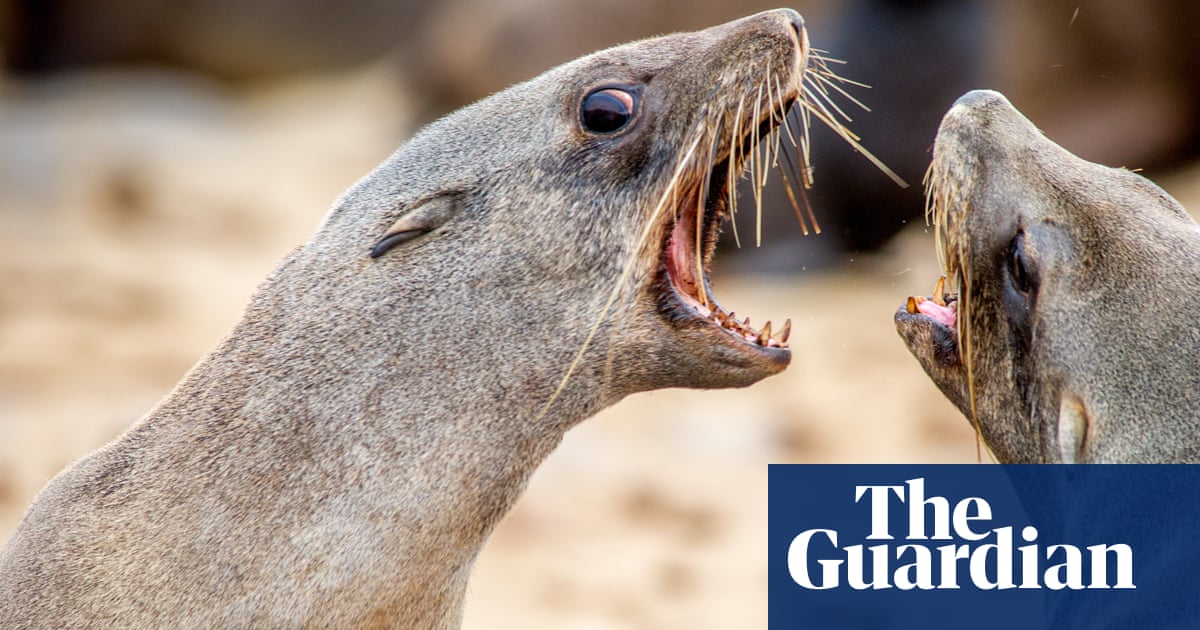…
Now, nine seals have tested positive for rabies – the world’s first significant outbreak of the disease in marine mammals – and people like me are watching the water along this 400-mile (600km) coastline for a different reason.
“I was out surfing the other day, when this seal popped up in the lineup [of surfers] to sun itself,” says Gregg Oelofse, who is in charge of coastal management for Cape Town council. “Usually, surfers would enjoy the interaction. But now everyone was paddling as fast as they could to get away.”
Last month, a single seal bit several surfers in a matter of minutes and another seal swam ashore with horrific facial injuries that could only have been inflicted by a seriously aggressive animal. These attacks convinced authorities to euthanise four animals and send their bodies to be tested for rabies.
Three of those four seals tested positive, and the number of cases has since risen to nine.



This is how it begins.
Has this person not had experience treating rabies?
Rabies has a relatively long time from exposure to become symptomatic, because the virus travels through your nervous system to infect your brain. It can be weeks or months from the time you’re exposed until you show symptoms, but once you do it’s nearly guaranteed to be fatal. That’s why standard procedure (in the US at least) is to give the vaccine after exposure, because your body usually has enough time to create antibodies before the virus progresses to the brain.
They do mention the incubation period for Rabies in the article can be up to two years, and they also mention it being found in seals starting in 2021.
You are correct that anyone bit recently may not be able to 100% confirm no transmission, but if no one bitten since 2021 has had Rabies from seal bites its still an accurate assessment.
Especially if people are bitten in (salt) water. Rabies spreads via saliva which is likely going to have a significantly smaller viral load if the bites happen in ocean water (also mentioned as a possible reason for low/no infection)
I missed that part, thanks. I saw they had said four seals had attacked people in the past month and three of them were rabies positive, but that may not be enough time for a person to show symptoms.
Yesterday there was a post about someone biting a flight attendant and I had the same thought
That must be a first. At least, I’ve never before heard of a seal on an airplane…
Wouldn’t put it past them; they’re clever. Might’ve figured out how to forge a plane ticket by now, you never know.
What about navy seals? Their bite is nasty
“Actually, we’ve decided rabies is not actually that deadly. Almost no one shows symptoms after a bite. It’s probably only bad for those with comorbidities. Think of the damage to the economy if we panic!” /S